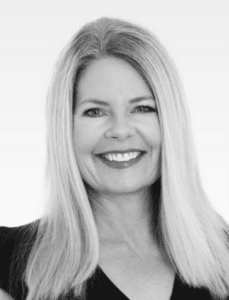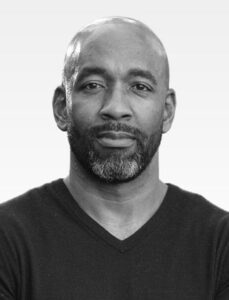As a marketer today, it’s not enough to tell customers what you are selling or why they should be loyal fans of your brand. Now, more than ever, marketers need to embrace the power of listening. Customers, fans, and consumers want to be heard; they want you to understand them and the problems they face. The marketing leaders of tomorrow have a profound responsibility: to show up as humans, to listen, and act on what they’ve heard in a meaningful way.
Effective listening allows you to accurately reflect your customers’ voices, tell stories that resonate, and create customer-centric experiences, according to Heidi Browning, CMO at the National Hockey League, and Julian Duncan, Chief Marketing and Strategy Officer at the Houston Rockets
In our conversation, they share how listening, especially as a leader, does not come without vulnerability. However, it can be the power that creates the next best-selling product, the everlasting campaign, the record-breaking fiscal year, and better yet, accurate representation of the people they serve and what drives them.
You Can Find the MTM Visionaries Podcast On Apple, Spotify, Amazon, and more!
Listening Comes with Experience
As you think about your career and personal journeys, what experiences shaped your perspective on “The Power of Listening”?
Heidi Browning: I learned the art of listening to fans and consumers through my experience working for Myspace during its peak.
When I look back, this was the moment marketing changed forever. iPhones and Flip cameras were in the hands of consumers, and with MySpace, they had a platform, a growing audience, and distribution. The content and distribution disrupted the power between consumers and brands forever.
For the first time, consumers had a place to use their voice, they were sharing their views with their brands and expected to be heard. This meant we had to answer marketers’ questions all over the world. Many wanted to know why they should be in this environment, how to navigate the lack of control over what people were saying, how to listen, and more. It was such an exciting time, and now social media is a pillar at the center of most marketing plans.
Julian Duncan: I credit much of my perspective on listening to my time at Nike. Listening was ingrained in you the moment you stepped foot on campus. It goes back to Nike’s owner and founder, Phil Knight, who challenges everyone to put the athlete’s voice first. Whether creating the world’s greatest basketball shoe or the world’s most powerful advertising campaign, it was about getting to the heart of what is important to the athlete and infusing that into your work.
Over time, I’ve learned that the consumer always decides, but you can’t do that without opening your ears to understand them. These two principles are powerful amid a group of hyper-competitive people used to winning. But listening to your customer keeps your pride in check and keeps you hungry for innovation.
Practical Applications of Listening
How are you applying listening in your roles today?
Heidi Browning: Early in my career at the NHL, I received a letter from an 11-year-old girl. She heard that we were wanting to attract more Gen Z fans and wanted to help. We invited her into the office to see the organization and meet the team. She came with a PowerPoint presentation filled with ideas and presented them with poise and thoughtfulness. Having the chance to listen to her was enlightening because many of the ideas she presented affirmed what we were already doing; however, she was not aware of it, which told us we were either not connecting with people in the right places or in the right way.
This one experience inspired the idea of our Youth Advisory Board, now called the NHL Power Players. We are on our fourth season of gathering a group of twenty-seven fans, ranging from 13-17 years old, out of an application pool of 1500 candidates. We meet with the participants twice a month to discuss everything from media and technology to content, sports, social responsibility, culture, music, and more.
This initiative is a valuable time to deeply understand how the youth culture lives, how they spend their time, make decisions, and what they find interesting. Over time, you start to see patterns and trends emerge. We use our Power Players’ insights to validate or augment our strategies.
Julian Duncan: I inherited a strong veteran team when I started as Chief Marketing and Strategy Officer at the Houston Rockets. From experience, I have learned the best way to walk into a room when you’re new is with your ears first. My team knows the sport’s ins and outs and has deep institutional knowledge. For me to lead them best and understand their passions and goals, I had to sit at their feet and listen rather than barking orders. As I learn about my team and what they have going on, it positions me to lead and guide them in the work that they are doing and help them get to the next level.
How to Listen and Lead
How do you balance listening and directing?
Julian Duncan: While experience and titles are a blessing, they can turn into something that keeps your ears from listening if not managed appropriately. As a leader, I not only listen to my team but invite them to listen to what is going on with our fans, encourage them to ask open-ended questions, and understand how things are different today compared to ten years ago.
As a leader, you want to take in everything and want everyone to feel empowered; as I said, every voice matters, irrespective of tenure or title. But at the end of the day, you cannot confuse listening with consensus. You still have to call the ball and be comfortable making decisions based on your findings.
Heidi Browning: Listening is an art that should be exemplified from the top down. Listening requires practice; you have to train for it, and eventually, it will become natural.
The more natural you are at listening, the more you will begin to teach your team how to do it, not just with words but with action. By demonstrating how you bring insights to the table, how you apply them, and the results that follow, people will start to pick up the importance of the skill and bring it into their work and the people they manage.

“The more natural you are at listening, the more you will begin to teach your team how to do it, not just with words but with action.”
— Heidi Browning, CMO, NHL
Finding Insights in The Data
As you receive a lot of input, how do you find real insights?
Heidi Browning: You must take in everything when it comes to locating the valuable insights beneath all the data you’re bringing in. There is quantitative data, and then there’s qualitative data. The key is identifying and listening for patterns. Once you spot a trend, take it further to find the “why” behind it. The next and most challenging step is to take an insight to understand the driving force behind consumer behavior, even if the insight seems basic. In other words, what is the basic human need beneath it all?
Vulnerability is Power
Vulnerability is critical in listening. How do you embrace and apply vulnerability?
Julian Duncan: Effective listening requires you to be comfortable being uncomfortable. Most leaders, especially in the C-suite, are uncomfortable coming across as if they don’t know something. I used to feel this way, but when I worked at Nike, my insight leader challenged me not to go into conversations trying to put all my Nike knowledge on the table but to ask open-ended questions.
On one of my work trips, we visited a high school basketball team and saw kids wearing our Nike shorts. We noticed that they rolled them up at the waist. When we asked them why, their response had a functional component and a form component. They told us that the shorts were so baggy that they interfered with their ability to dribble the ball between their legs, which led to turnovers. Other kids said they simply liked how it looked; they wanted to be different. We took those insights back with us and poured the data into a new design, which is still on the basketball courts today.

“Just because we have Cs in front of our title does not mean we know it all. The more you ask questions and the more information you get, the more you benefit your team, company, and industry peers asking the same questions.”
— Julian Duncan, CMO, Houston Rockets
Heidi Browning: Being vulnerable is challenging as a woman, especially if you’re the only woman at the table. Society teaches us to be tough and strong, but it’s okay not to be okay, make mistakes, and not have the answer to everything. We put so much pressure on ourselves to be perfect that it makes it difficult to show our vulnerabilities.
It is liberating when you get the courage to ask questions and receive feedback about your leadership style, performance, or what others say about the problems you solve. Great ideas come from everywhere. Listening to your employees, fans, tough feedback, and the question behind the question allows you to see the world differently and only makes you better.
_____________________________________________________
Visionaries, hosted by Nadine Dietz, airs every Tuesday at 9 AM PT and is brought to you in partnership with The Wall Street Journal. Each week, two new visionaries share their game plan and how that impacts today’s teams, talent, and hybrid work environment.
Heidi Browning, CMO, NHL: With over 25 years of marketing experience, Heidi Browning brings a valuable mix of client, agency, and media owner perspectives to the NHL. She is known as a passionate pioneer in digital, mobile, and social marketing and continues to drive thought leadership and innovation within the industry. Inspired by the intersection of media, technology, and culture, Browning studies generational trends in consumer attention and brand engagement. Heidi is responsible for executing the League’s growth marketing strategy with a focus on social media, digital, data, and innovation. She has been recognized as one of the “Most Powerful Women in Sports” by both Forbes and Adweek, by Forbes as one of the Most Influential CMOs in the world, and by Crain’s as one of the Notable Women in the Business of Sports.
Julian Duncan, Chief Marketing and Strategy Officer at Houston Rockets: Julian Duncan joined the Houston Rockets as the Chief Marketing and Strategy Officer in 2021; where in addition to leading the team’s marketing, promotional, and branding efforts, Julian also oversees innovation, fan experience, social & digital strategy, content production, retail, community engagement, and strategy & analytics.
He was previously the CMO and SVP of social responsibility for the Jacksonville Jaguars, leading the strategic and creative development of all marketing, branding, digital, experiential, and promotional strategies and tactical execution platforms for the Jaguars and Bold Events.
Duncan has more than a decade of brand management and marketing experience with two globally recognized sports brands, Nike and Under Armour. He works to increase minority participation in leadership positions in corporate spaces as the co-founder of the Monday Night Mentorship Collective, providing mentoring and coaching to participants.
Marketers That Matter® is a community of top marketing executives coming together to pioneer the future of marketing, sharing real-time experiences, and solving current challenges.
Our parent company, 24 Seven, specializes in helping you find exceptional marketing and creative talent for your teams.

